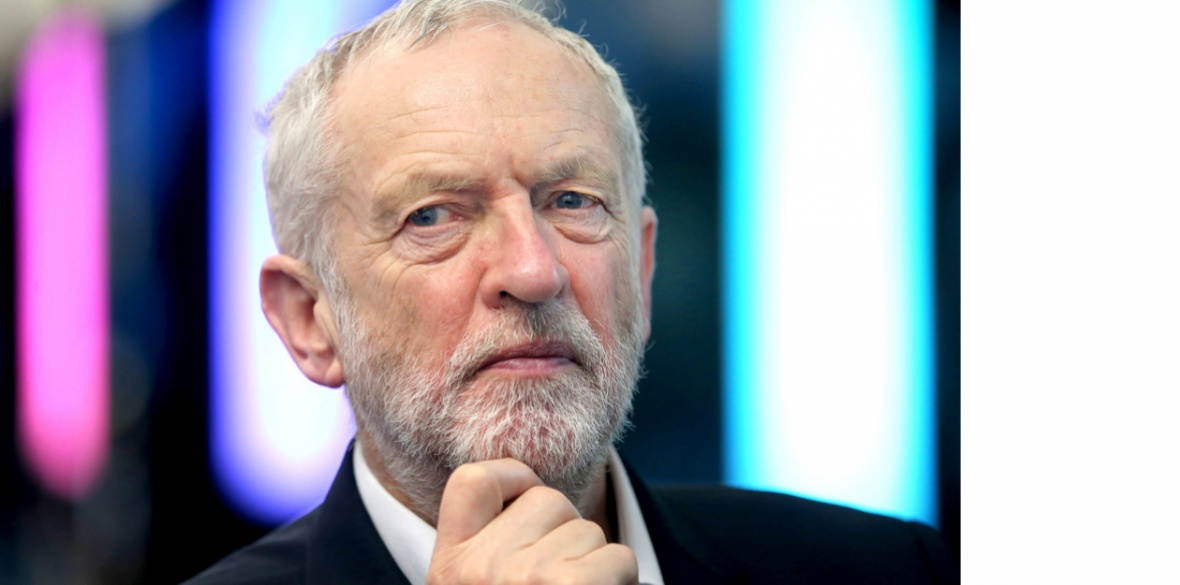This is the last article you can read this month
You can read more article this month
You can read more articles this month
Sorry your limit is up for this month
Reset on:
Please help support the Morning Star by subscribing here
JEREMY CORBYN’S warning about the state of Britain’s media and the need for bold, radical thinking to create an informed public is crucial in light of the demise of the Campaign for Press and Broadcasting Freedom.
For nearly four decades the trade union-supported CPBF has campaigned and lobbied for a diverse and free media that is accountable to rather more than half a dozen billionaires.
Those seeking an alternative to the pro-Tory orthodoxy of the Murdoch, Rothermere and Barclay stables traditionally comforted themselves in the company of progressive liberalism found in The Independent and The Guardian.
The Independent, funded by a Russian oligarch’s family, is now online-only, leaving just the i to be seen on news-stands, while The Guardian switched from ownership by The Scott Trust in 2008 to The Scott Trust Ltd.
A difference of just three letters but encompassing a decisive lurch from trusteeship to bog-standard corporate ownership.
All national dailies, with the sole exception of the co-operatively owned Morning Star, have profits as their motivation, essentially treating news, information and entertainment like baked beans, clothes or other products for sale.
The logic of this approach is that, when profits decline, quality output is sidelined and titles are merged or closed, with journalist jobs axed.
The National Union of Journalists reported in March 2017 that 22 local papers had closed over the previous 17 months and no fewer than 300 titles had folded in the last decade.
Much-maligned local papers don’t simply provide hatch, match and despatch adverts, court reports, accounts of municipal authority decisions and local news items, as important as these all are.
They are an integral part of democracy, shedding light on local politicians’ activities and those of their challengers. Effective democracy depends upon voters being fully informed.
Corbyn’s proposal to the the Alternative MacTaggart Lecture at the Edinburgh TV Festival that “we should look at granting charitable status for some local, investigative and public interest journalism” is worth looking at.
The same goes for assisting “pioneering not-for-profit organisations, like the Bureau of Investigative Journalism, to fund their vital work through tax exemptions, grants and donations.”
The Labour leader’s assertion that the public has an extremely low level of trust in the current media was confirmed recently when there was a collective gasp of astonishment at corporate media declarations that the phenomenon of “fake news” had to be tackled.
For most people, even readers of the right-wing titles, these are the real and major sources of fake news, not the blogs and personal websites of individuals countering accepted Establishment views.
Corbyn’s comments that “the best journalism takes on the powerful, in the corporate world as well as government, and helps create an informed public. This work costs money. We value it but somehow that doesn’t translate into proper funding and legal support” could have been written for the Morning Star.
But the issues raised apply much more widely than for our paper alone.
Democratisation and decentralisation is vital to the whole of society, because a truly diverse and accountable media cannot be entrusted to the handful of reactionary oligarchs who dominate every aspect of it.
The CPBF, which will formally shut up shop at the end of November, is already planning to kick-start “a large-scale democratic membership organisation to organise, fund and support campaigns for Better Media in the UK.”
This development augurs well for all opponents of fake news, chequebook journalism and restricted access to publication.











